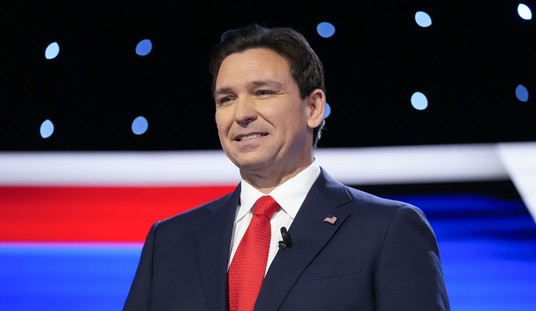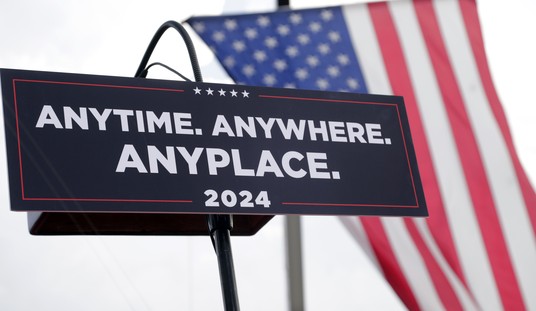California has added three more states to its travel ban list. California Attorney General Rob Bonta thinks that transgender students should be allowed to compete in any competition they wish to compete in.
Three states have restricted transgender students from participating in school sports that align with their chosen gender identity. Missouri, Nebraska, and Wyoming have had recent legislation passed which Bonta says discriminates against transgenders. So, Bonta is restricting state-funded travel to those three states. California Assembly Bill 1887 mandates that the attorney general update the website to the current list of states on the banned list.
California progressives love nothing more than to virtue-signal to the rest of the country. Some red states are passing legislation to protect minors from the propaganda wars of the transgender activist agenda.
According to a press release published by the attorney general’s office, Bonta said legislation targeting the transgender community is part of a “concerning trend of discriminatory practices in states across the country, aiming to roll back hard-won protections.”
The press release also stated that such laws “specifically target and marginalize transgender youth by preventing them from participating in sports in accordance with their gender identity, as well as restricting access to critical gender-affirming healthcare services.”
Bonta thinks that Missouri, Nebraska, and Wyoming are not only discriminatory but also guilty of government overreach. Since when do Democrats care about government overreach? They think government intervention solves everything. Well, since it goes against their agenda. In this case, it is to prop up a growing industry which helps minors transition and change their lives forever. There is a lot of money in transitioning young people using puberty blockers and performing surgery that mutilates bodies forever. Why is it too much to ask that such decisions be made once a minor becomes of legal age?
Why won’t progressives protect girls and women in sports?
There is a travel ban on about half of the states due to alleged anti-LGBTQ laws. Nineteen states have now enacted laws restricting or banning gender surgeries for minors. Federal judges have blocked enforcement of laws in Alabama and Arkansas. In Oklahoma, opponents are seeking a temporary court order blocking legislation. That state has agreed to not enforce its ban while they do so.
Travel bans to restrict state-funded trips isn’t anything new. During the time after the 2020 elections, when states passed legislation to make election law reforms, progressives called for travel bans on those states. When heartbeat bills began passing in pro-life states, progressives called for travel bans to those states. California is quick to cut off state-funded travel for its employees to states governing as its citizens want, because California leadership thinks their way of thinking is superior to that of other states.
The addition of three states over LGBTQ issues now brings the California travel ban total to 26 states.
For the Missouri ban, Bonta called out S.B. 39, signed into law in June by Republican Gov. Michael Parson. The law prohibits public school districts, including charter schools and public and private colleges and universities, from allowing trans girls to compete in any athletic competition consistent with their gender identity. The travel ban takes effect with the new law in August.
In Nebraska, Bonta cited L.B. 574, the so-called “Let Them Grow Act,” signed in May by Republican Gov. Jim Pillen. That legislation denies gender-affirming care for trans people 19 years old or younger. The ban takes effect in November when the new law does.
In Wyoming, Bonta referenced S.F. 133, which took effect in March without the governor’s signature and bans public K-12 schools — as well as private schools competing against public schools — from allowing female trans students to participate in female sports teams, and features a backdoor “activity eligibility commission” in the event the law is struck down by the courts. The travel ban takes effect immediately.
Do travel bans work among states? Maybe in the beginning but the results begin to fade over time.
For example, in Florida, ten groups can canceled conventions or large meetings due to recent laws signed into effect by Governor DeSantis. This is a presidential election cycle and there are plenty of progressives working to torpedo DeSantis so that Biden runs against Trump. There are some missteps by the overzealous cancel warriors, though, like when the NAACP issued a travel advisory to its members to discourage tourism travel to Florida. That advisory was over what the group called racist bans on CRT in the classrooms of young children and over AP History curriculum. Turns out that some in national leadership in that organization have homes in Florida. Other members of the board regularly vacation there. That’s awkward.
“They don’t want to suggest that they are going someplace to bring business which may not be as friendly to their core values as others,” said Stacy Ritter.
Some of those groups, like aParent Miracles Foundation, which held its annual event at The Diplomat last year, cited the NAACP travel advisory put out in May in protest over new state restrictions on African American history lessons, and on diversity training.
A farmworker’s association pulled two events after Florida Gov. Ron DeSantis signed a law tightening immigration enforcement and an education group raised fears they would lose attendance over Florida’s new education guidelines.
“Many are concerned they won’t get people coming here, that the conferences won’t be successful if they’re held in Florida,” said Ritter.
Issues vary. Travel bans can be over election laws, immigration laws, the LGBTQ agenda, teacher union beefs, and abortion laws.
But, some cities are repealing travel restrictions.
In Sacramento, State Senate President pro tempore Toni Atkins (D) introduced legislation repealing the state’s restrictions. The out lawmaker voted for the original mandate, enacted after North Carolina’s notorious “bathroom bill” took effect in 2016.
“We have now had 23 states that fall under that legislation,” Atkins said last week, before the AG’s latest additions. “I think it’s time to pivot because it’s not as effective as it could be.”
In San Francisco, the Board of Supervisors voted in May to repeal their own set of travel restrictions, also enacted in 2016, citing a report that said the city was losing money in their effort to deter LGBTQ+ discrimination.
Soon, there won’t be much available for state employees in the way of travel options. That’s probably a good thing, actually. Think of all the money taxpayers are saving by keeping the state employees home and at work.








Join the conversation as a VIP Member